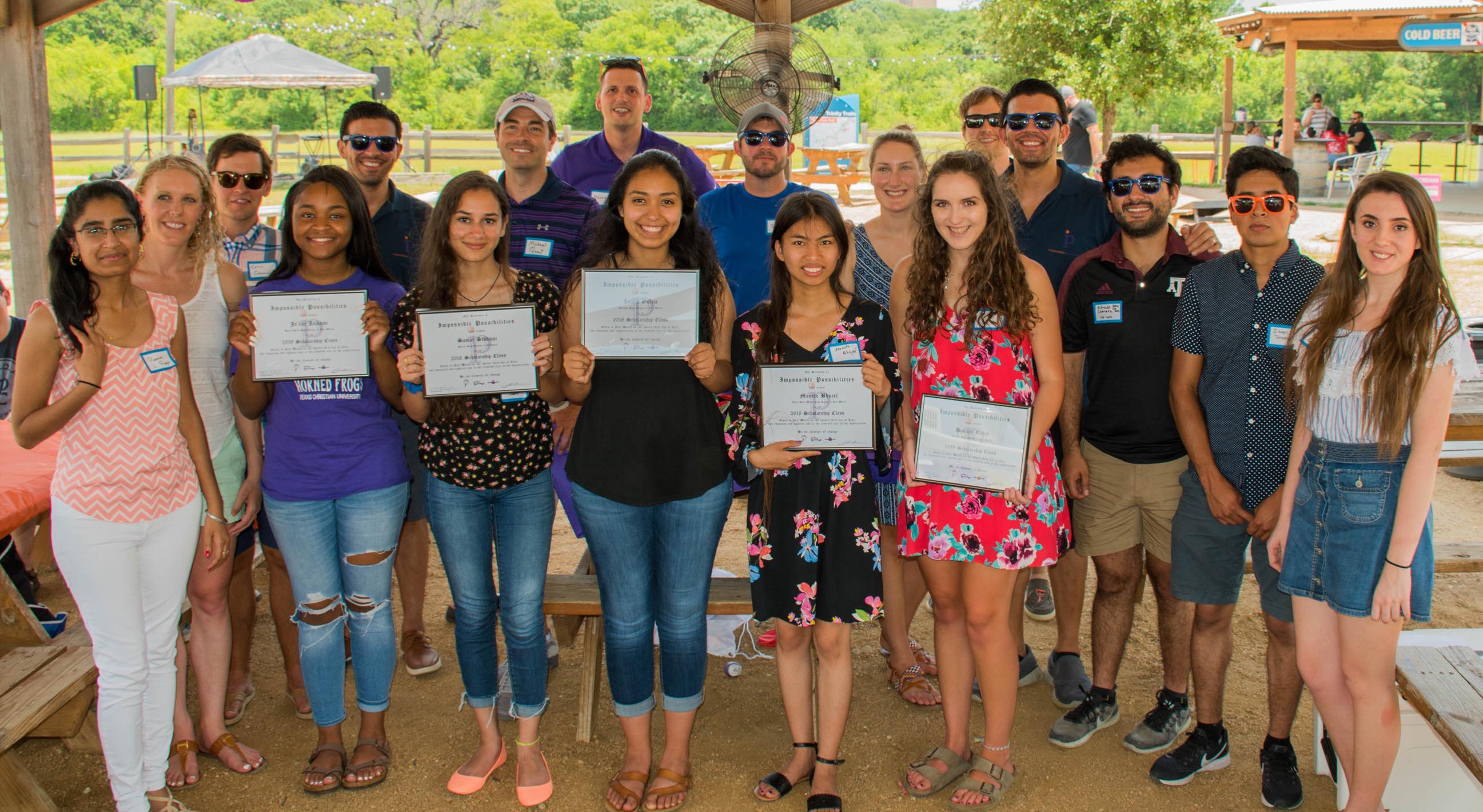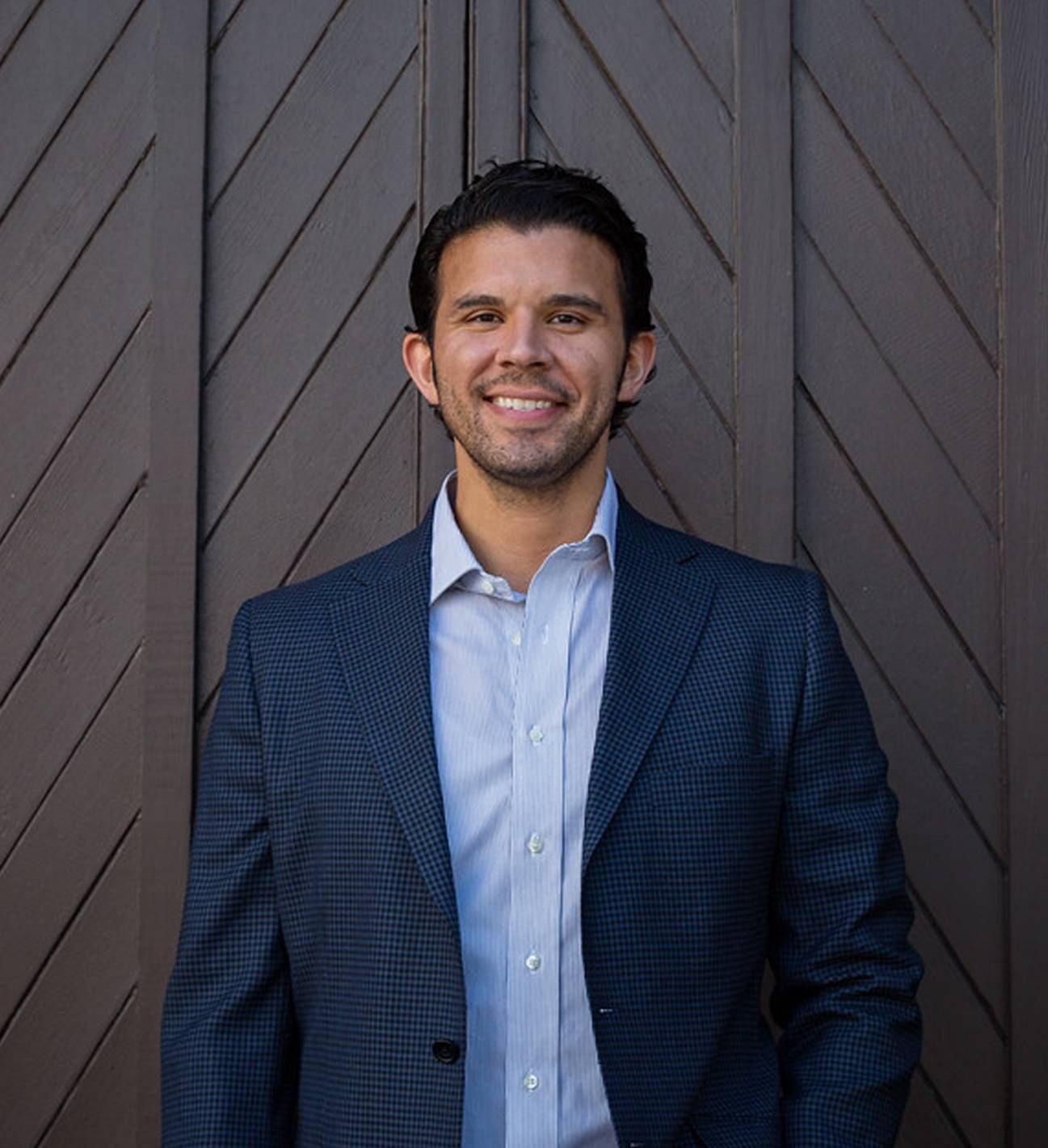Imagine the possibilities

Imagine the possibilities
by Brian Hudgins
Bobcat and his twin provide bridge to education opportunities
Two years after graduating from Texas State University, Justin Hernandez (B.S. ’05) helped to launch Impossible Possibilities (IP), an educational nonprofit. Little did he know that the timing was not the best.
In a few months after the launch, Americans would begin feeling the effects of a serious economic downturn. Hernandez, who earned his degree in finance and economics, and his twin brother, Joshua, laid the foundation for the program in 2007 with a goal to provide scholarships and literacy programs to students in the Dallas/Fort Worth area. “Joshua and I put ourselves through college,” Hernandez says. Joshua Hernandez has a degree in journalism and mass communications from the University of Colorado.
“We worked many hours and realize how difficult that can be. We didn’t have much, but we knew the importance of education. We wanted to give students opportunities to succeed. We didn’t want to wait until we retired and were comfortable to begin giving back,” Hernandez says.

Born and reared in Victoria, Hernandez has lived in San Angelo, Monahans, and Haskell. This gave him some insight into the needs of students coming from small towns. “I knew anything was possible with an education,” he says. He also had the daily example provided by his father, Dr. Gene Hernandez, who emigrated from Colombia.
“To leave any country in your 20s and then work your way to becoming a doctor — seeing how that has translated into helping many people — that is one of the reasons why we started,” Hernandez says. “A lot of these students just need a chance. Mentorship and funding go a long way toward doing that.”
In August 2018, IP celebrated its 11th anniversary. The group that began as a self-funded venture has awarded 67 scholarships totaling more than $120,000. There is also an incentive-based reading program, Maven’s Milestones, that rewards youngsters for reaching reading milestones.
Hernandez credits his Texas State economics professors with teaching him the value of money and banking. “I learned (at Texas State) how to take a small amount of funding and allocate it to maximize value,” Hernandez says. “In addition to the work we do with Impossible Possibilities, Joshua and I both have full-time jobs. Allocating our time is just as important if we want to continue accomplishing our goals.” Hernandez is a vice president of finance and treasurer for Dallas-based Chief Oil and Gas.
“At first, it was strictly us talking to students and school administrators,” Hernandez says. “We would get maybe 50 scholarship applications. Now it’s 150 to 200 applications without all the promotion. People know about our scholarships program and we have interns who work with us and do a lot on social media.”
Fellow Texas State alumnus Johnathan Baker (B.B.A. ’04) has also played a pivotal role in Impossible Possibilities as a member of the board of directors. “Justin and I worked together at our first jobs at Lockheed Martin,” Baker says. “I had been involved volunteering at events for Impossible Possibilities before being on the board of directors for the last several years. It was very much a word-of-mouth effort. We would put flyers on cars. We started hosting an annual 5K race event to get out there in the community.”
At the five-year mark, the organization began to gain traction within the local business community. “Those first few years were difficult because a lot of discretionary funds dried up during the Great Recession,” Hernandez says. “After year five, donors know you have gotten through the growing pains.”
Last year, the first international scholarship was awarded to a student
in Kenya through an IP program called Past the Periphery, which partners with international organizations. Plans are underway to start offering continuing education scholarships for years two through four. The organization also launched a scholarship network to help past and present scholarship recipients communicate with each other.
Hernandez took another big step last year when he married his wife, Katelynn. Impossible Possibilities played a big part. “It just so happens that my wife was one of Impossible Possibilities’ first volunteers,” he says. ✪